Liisa: Welder + Teacher
[hayward, ca, usa]
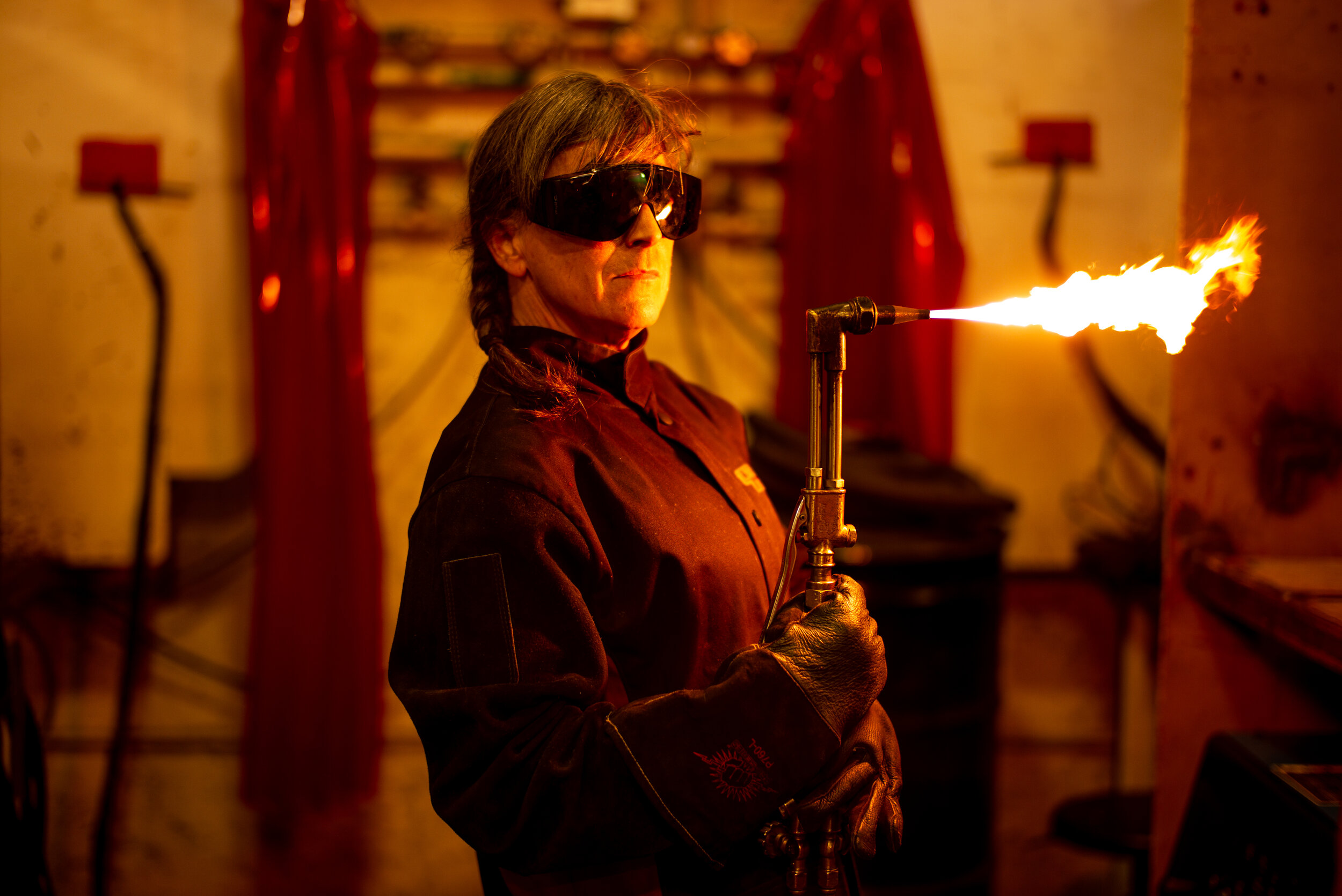
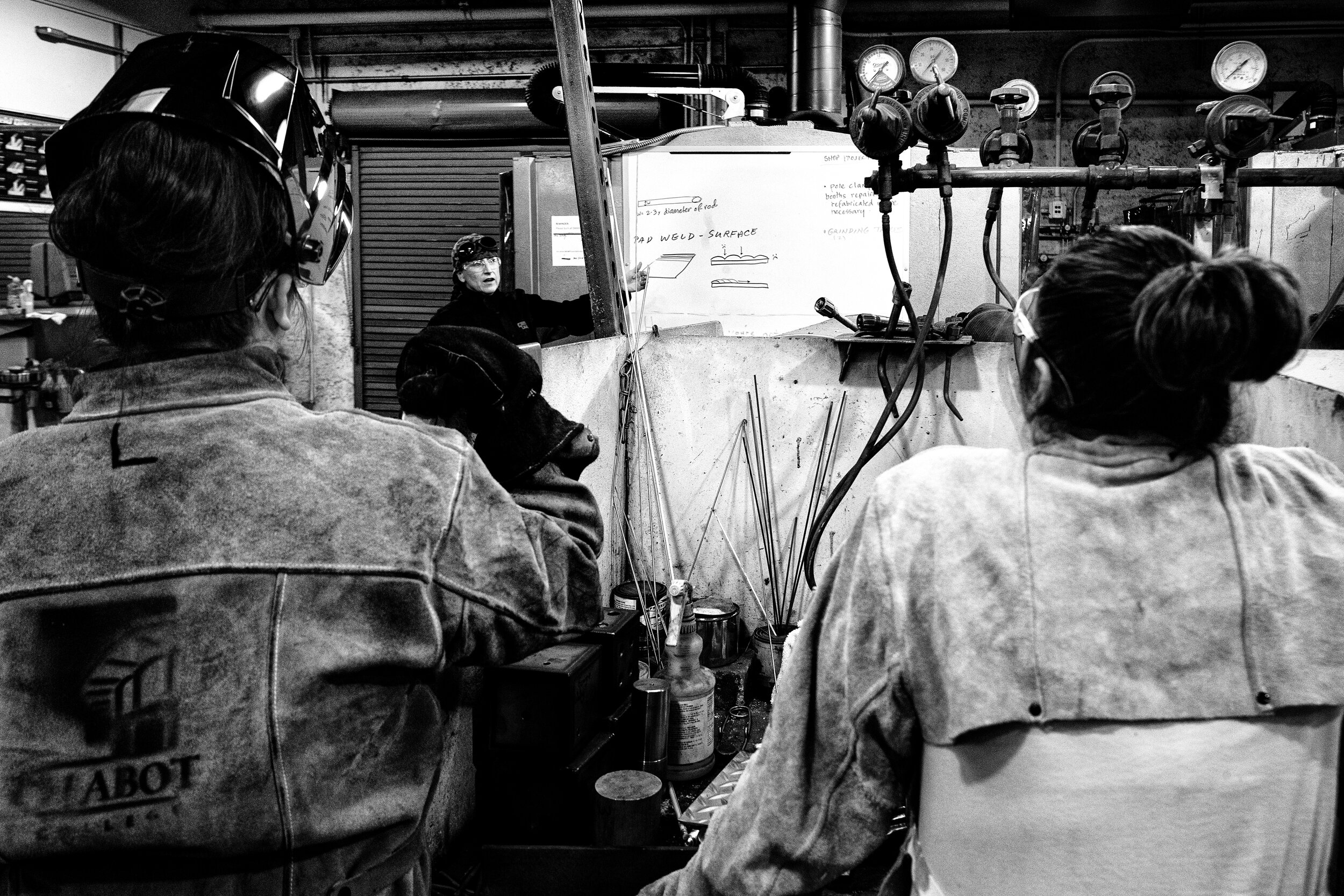
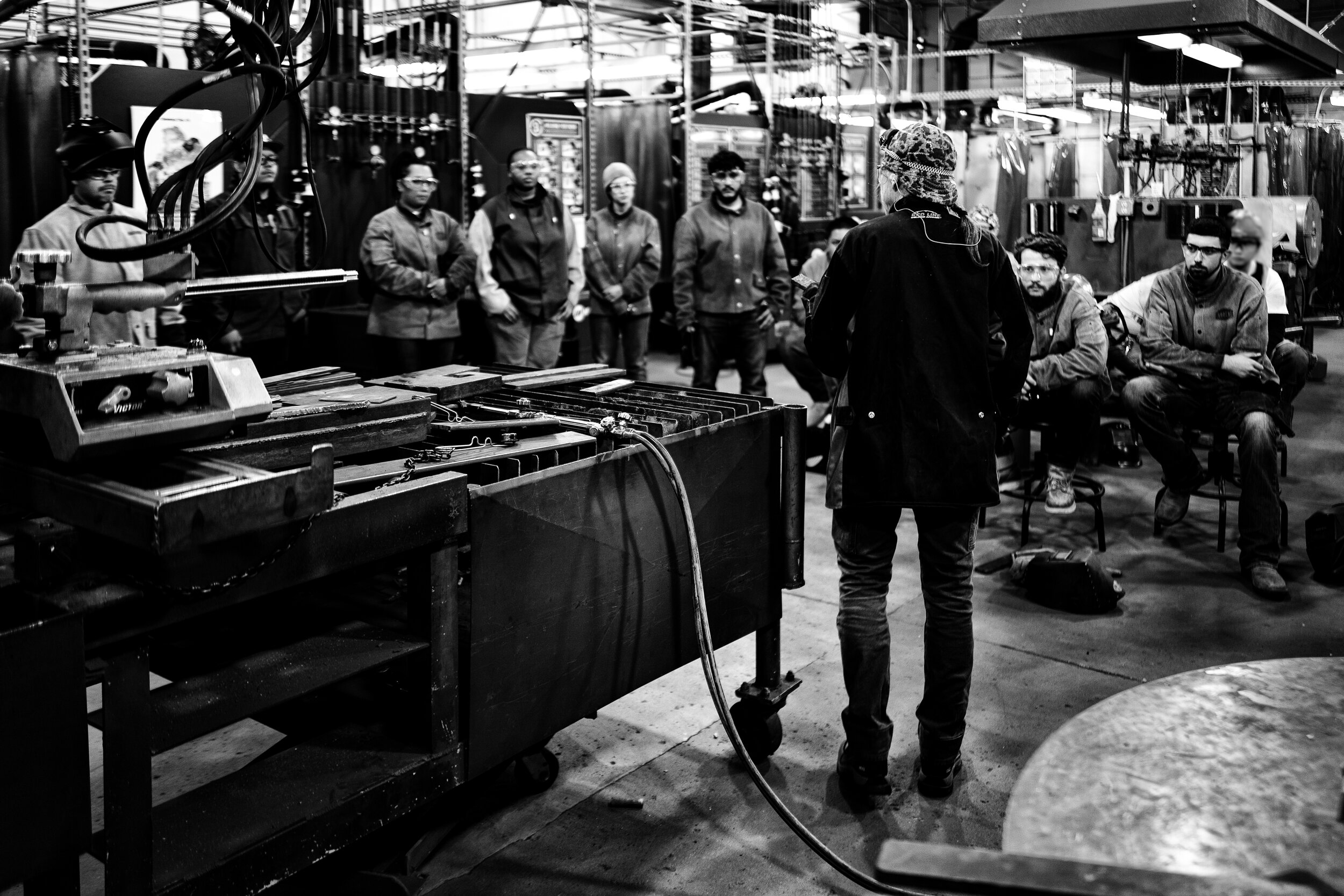
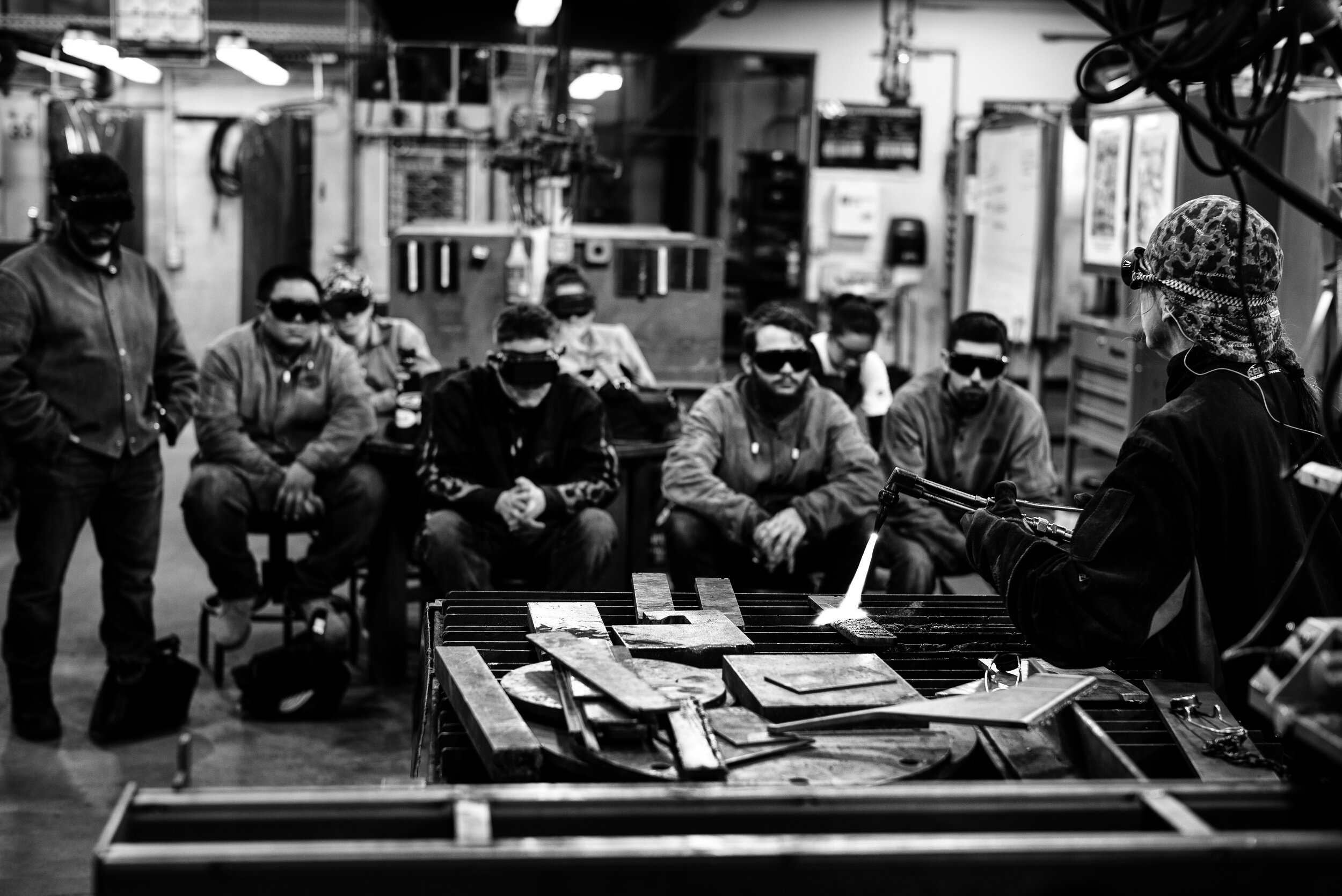
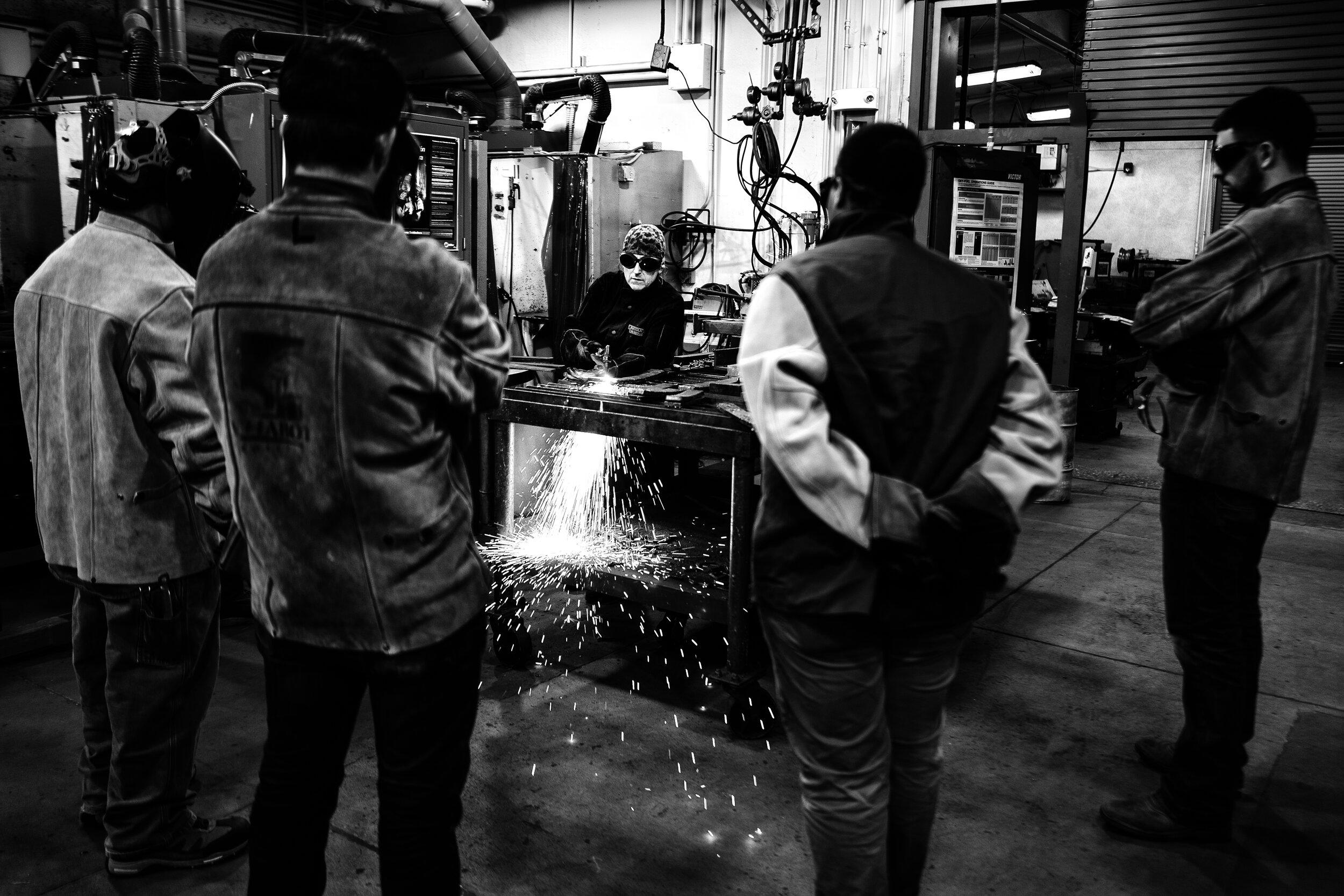
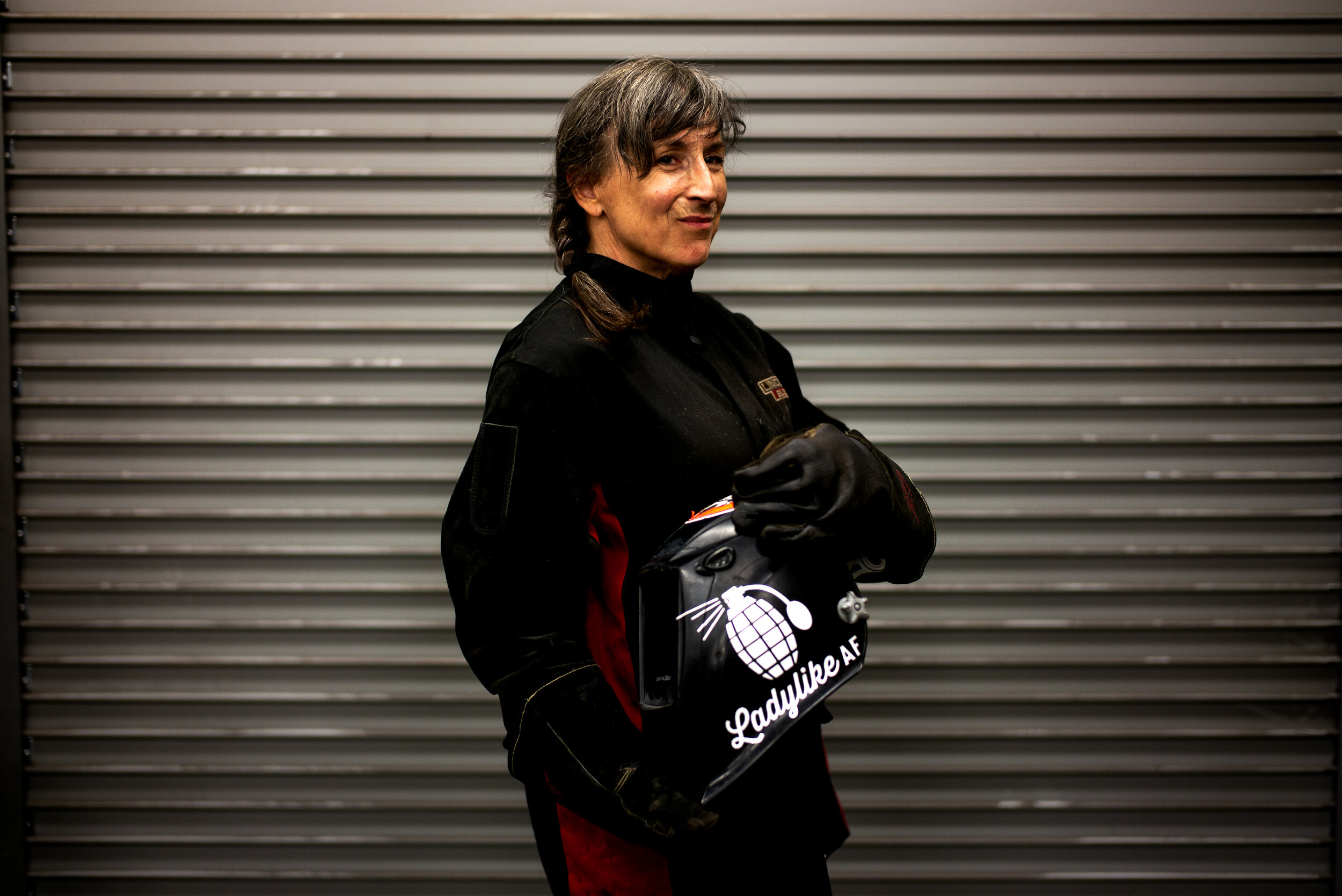
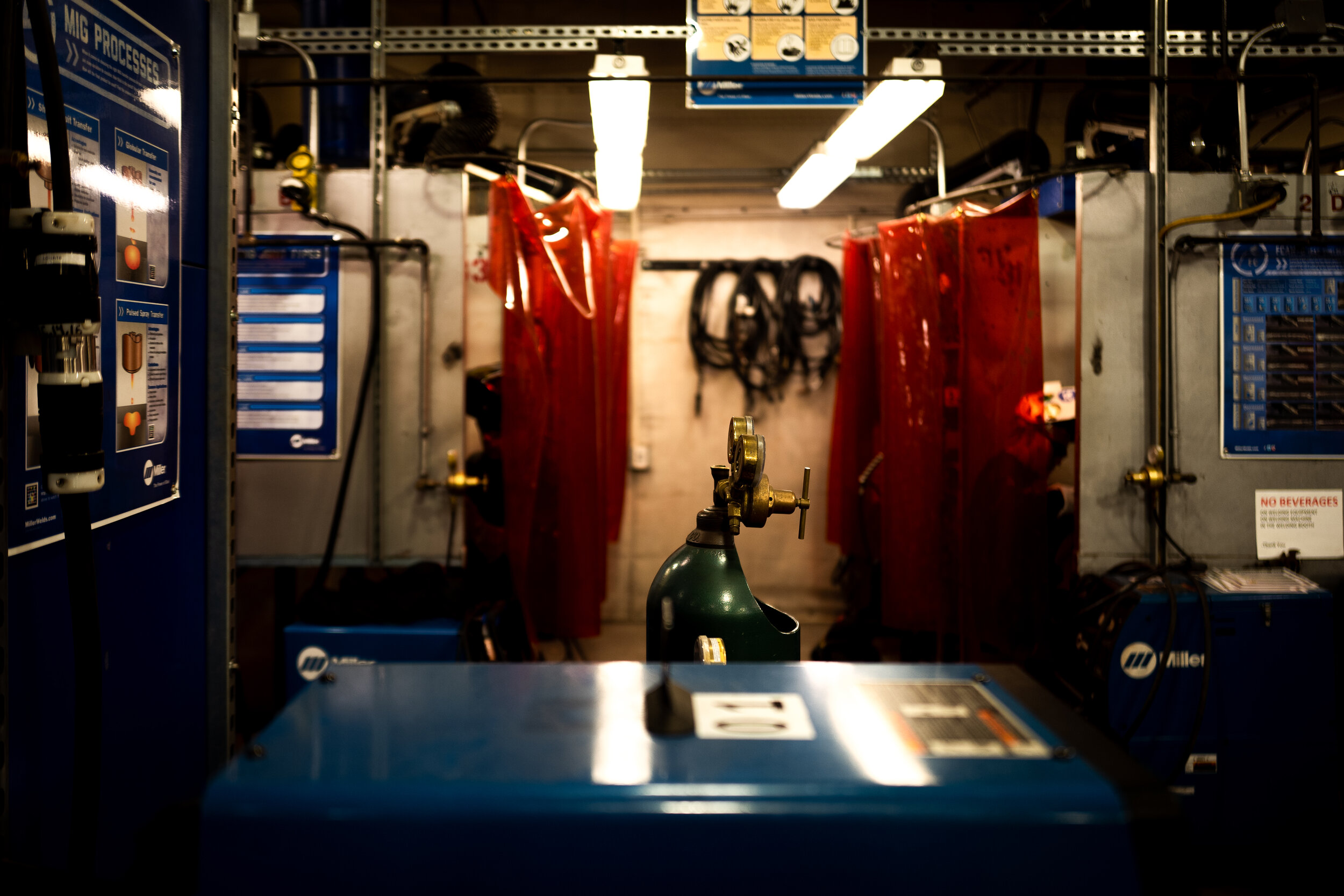
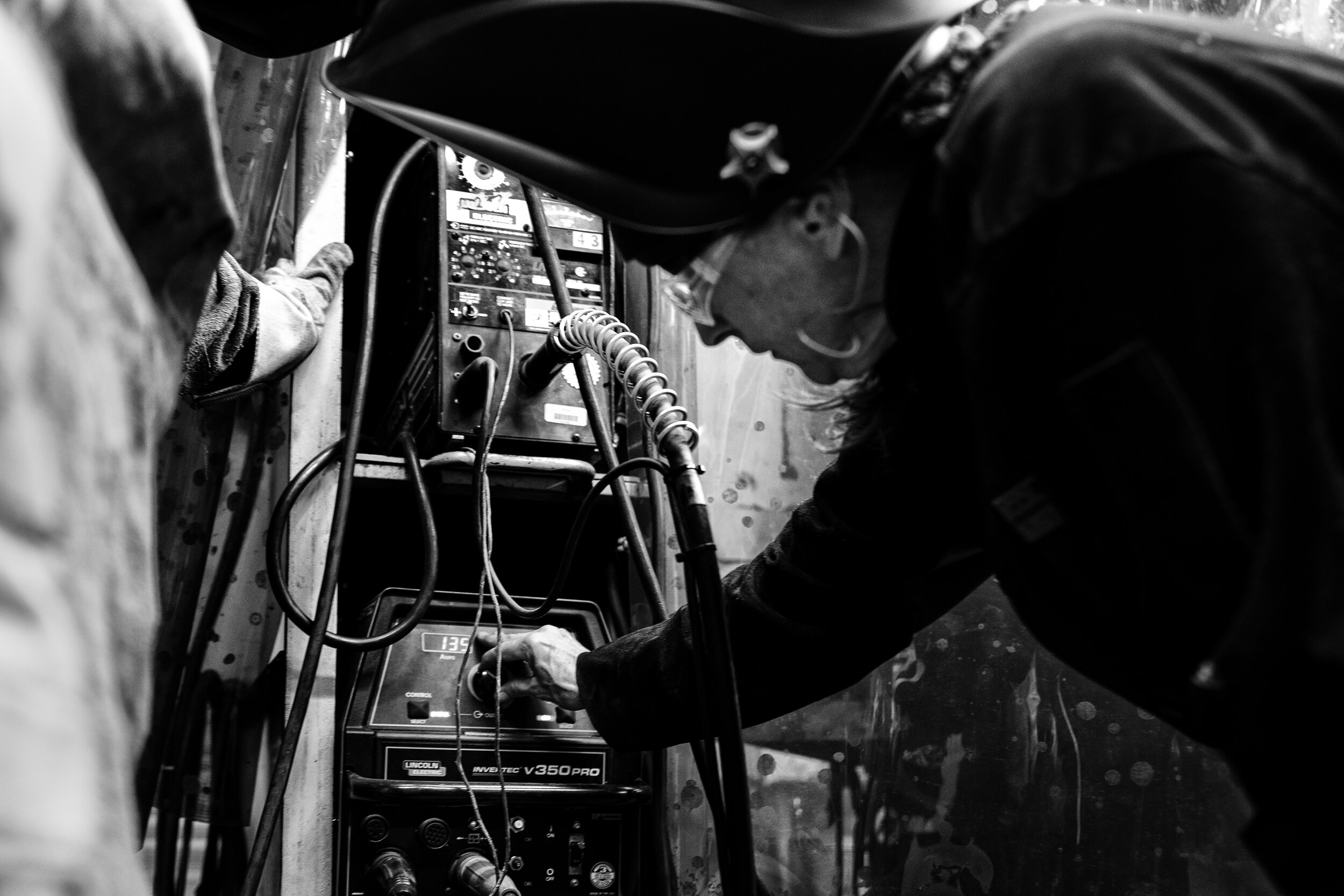

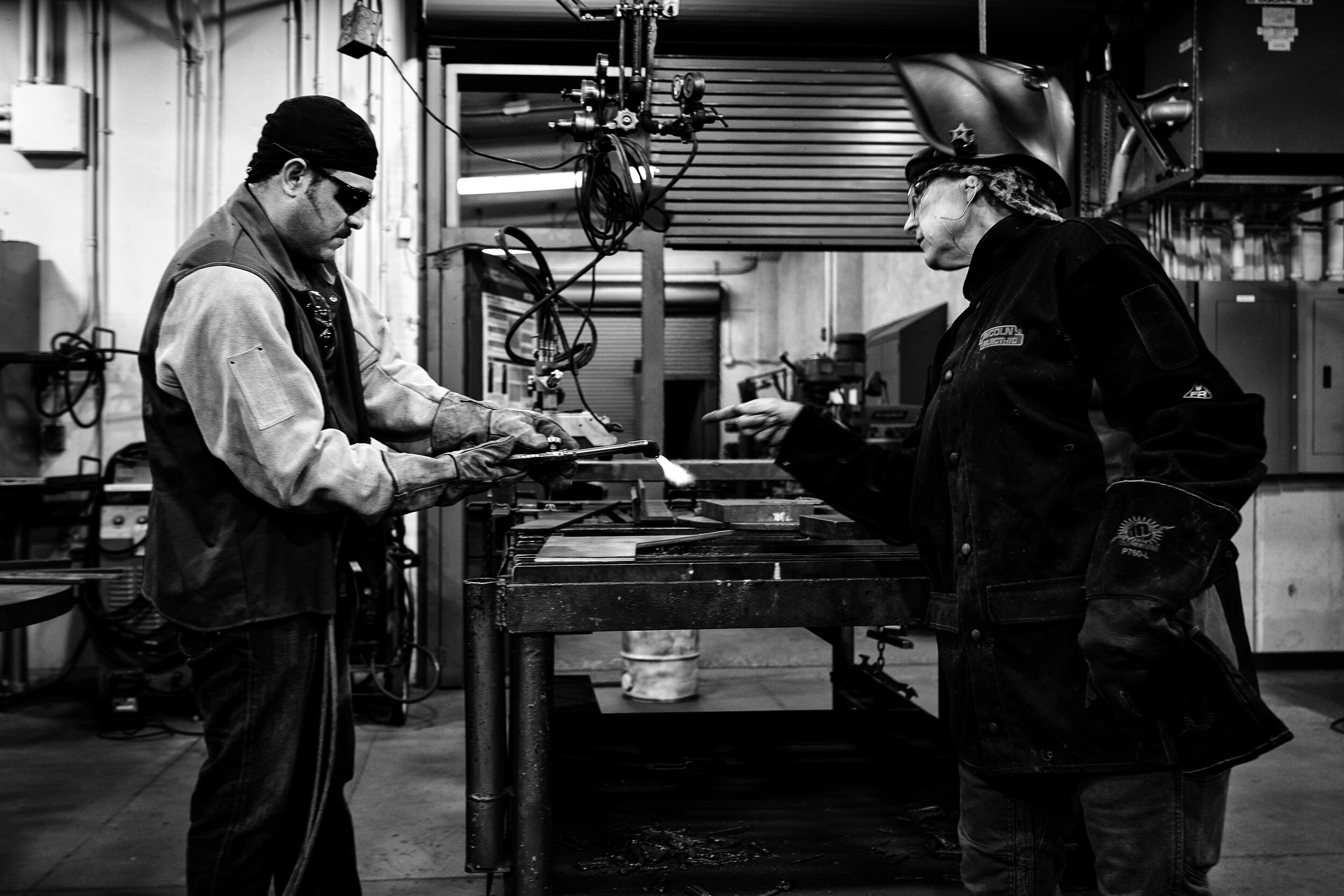
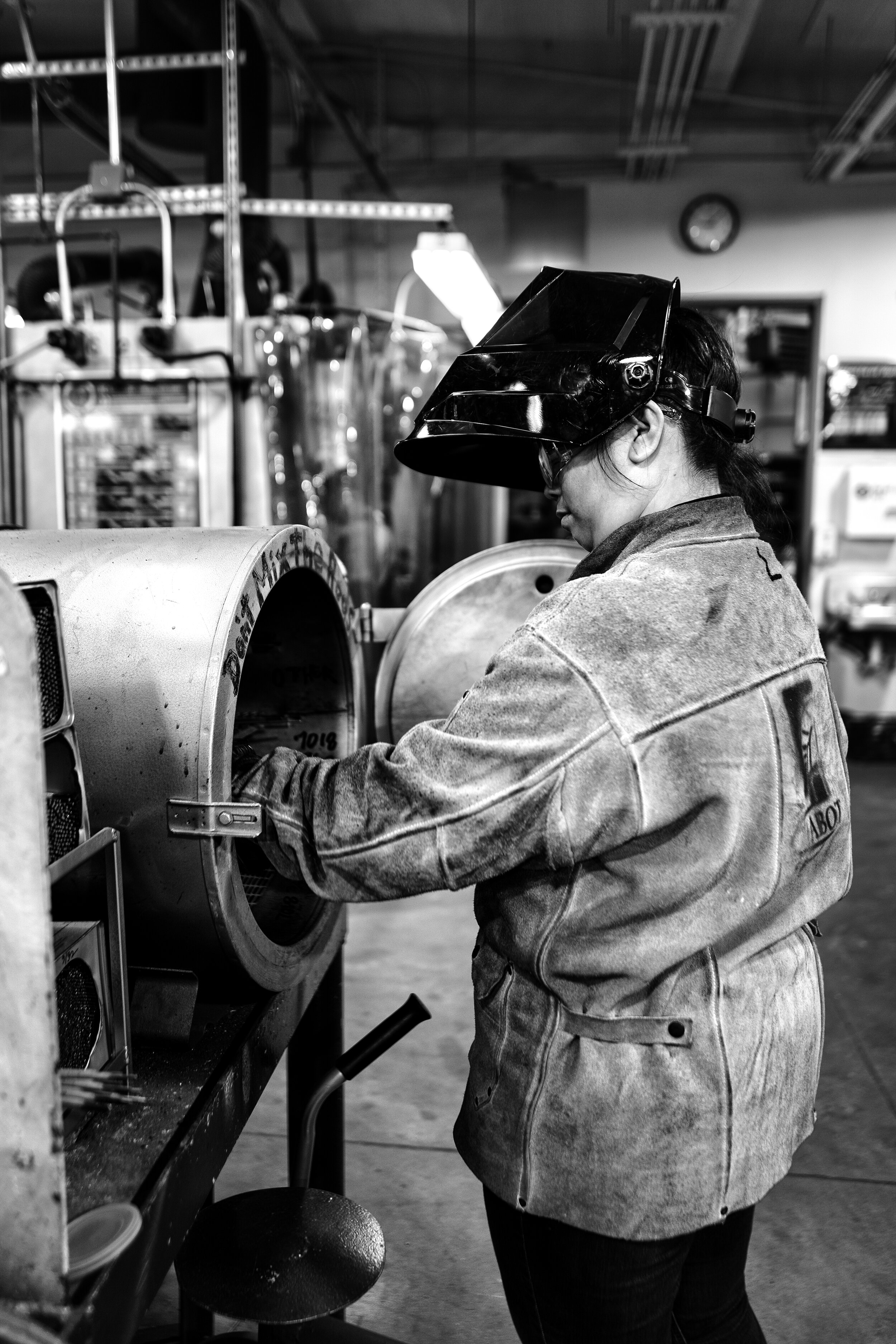
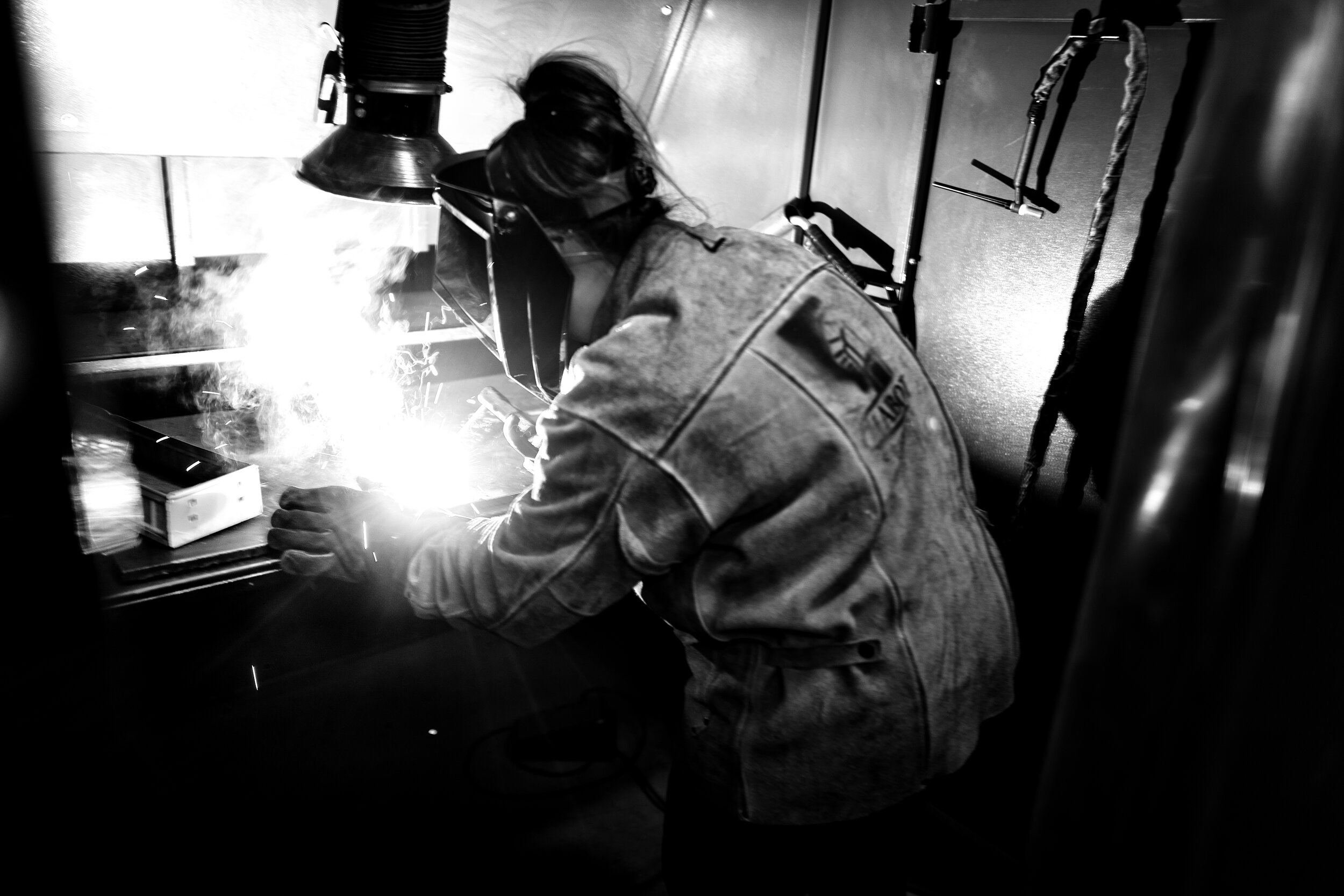
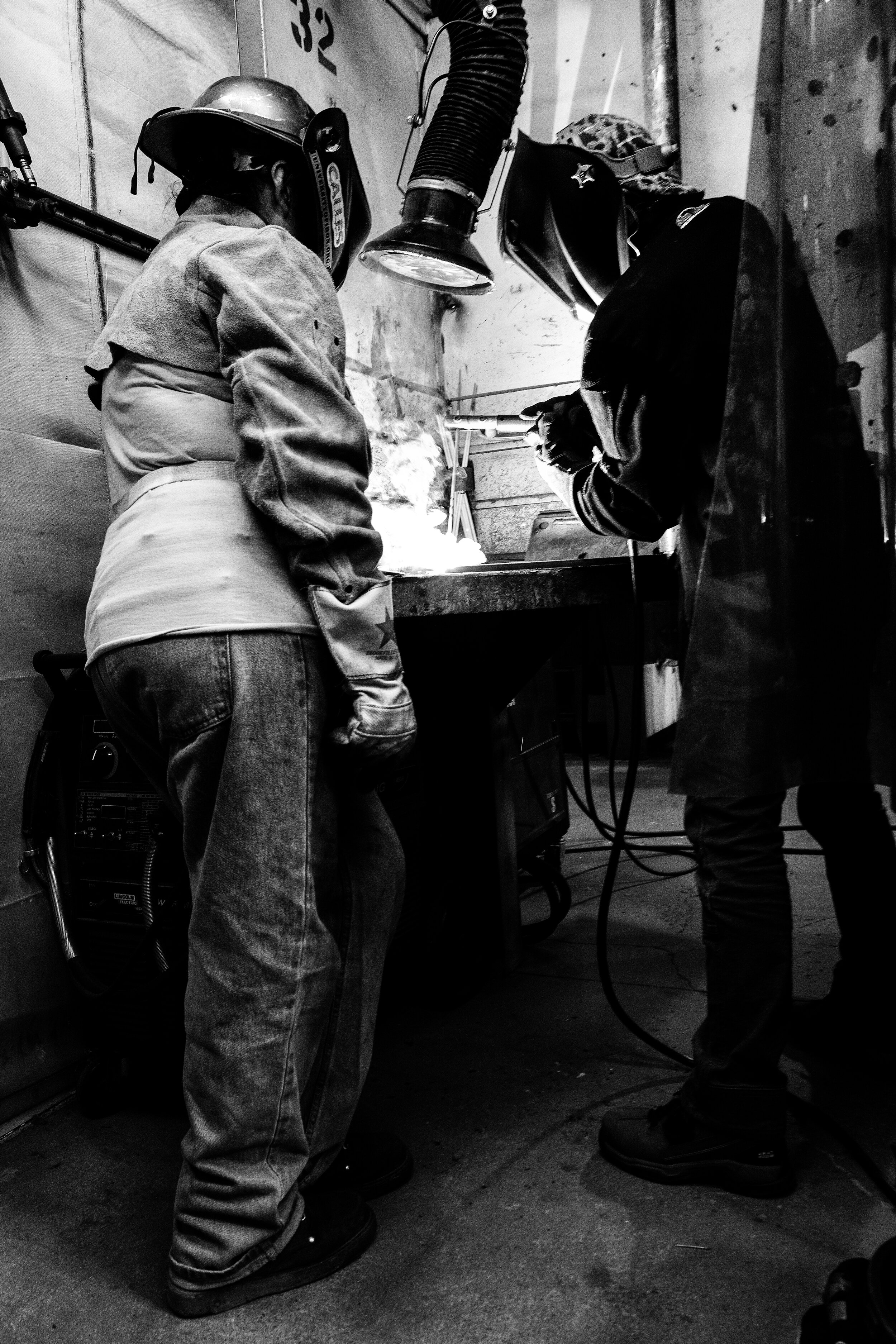
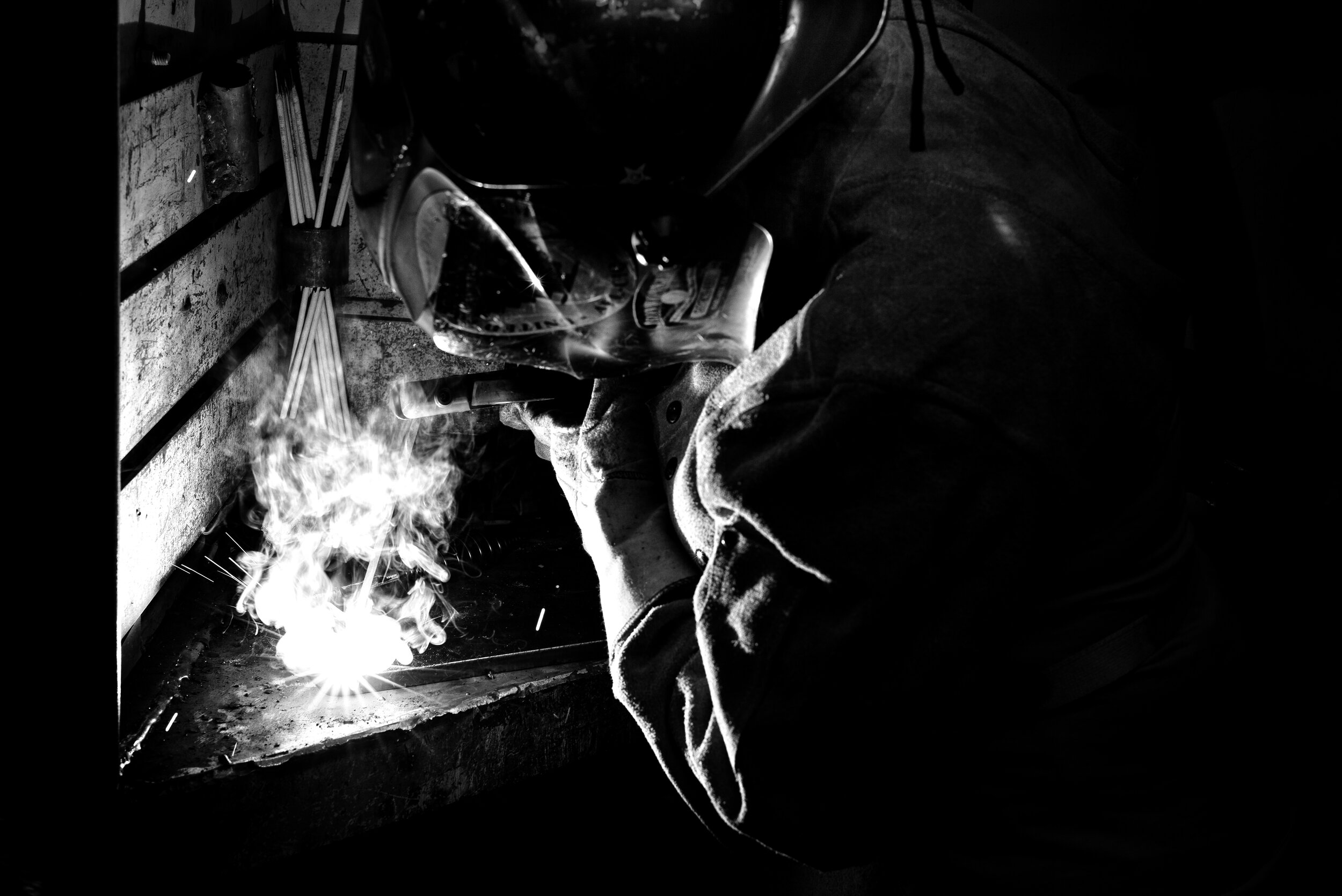
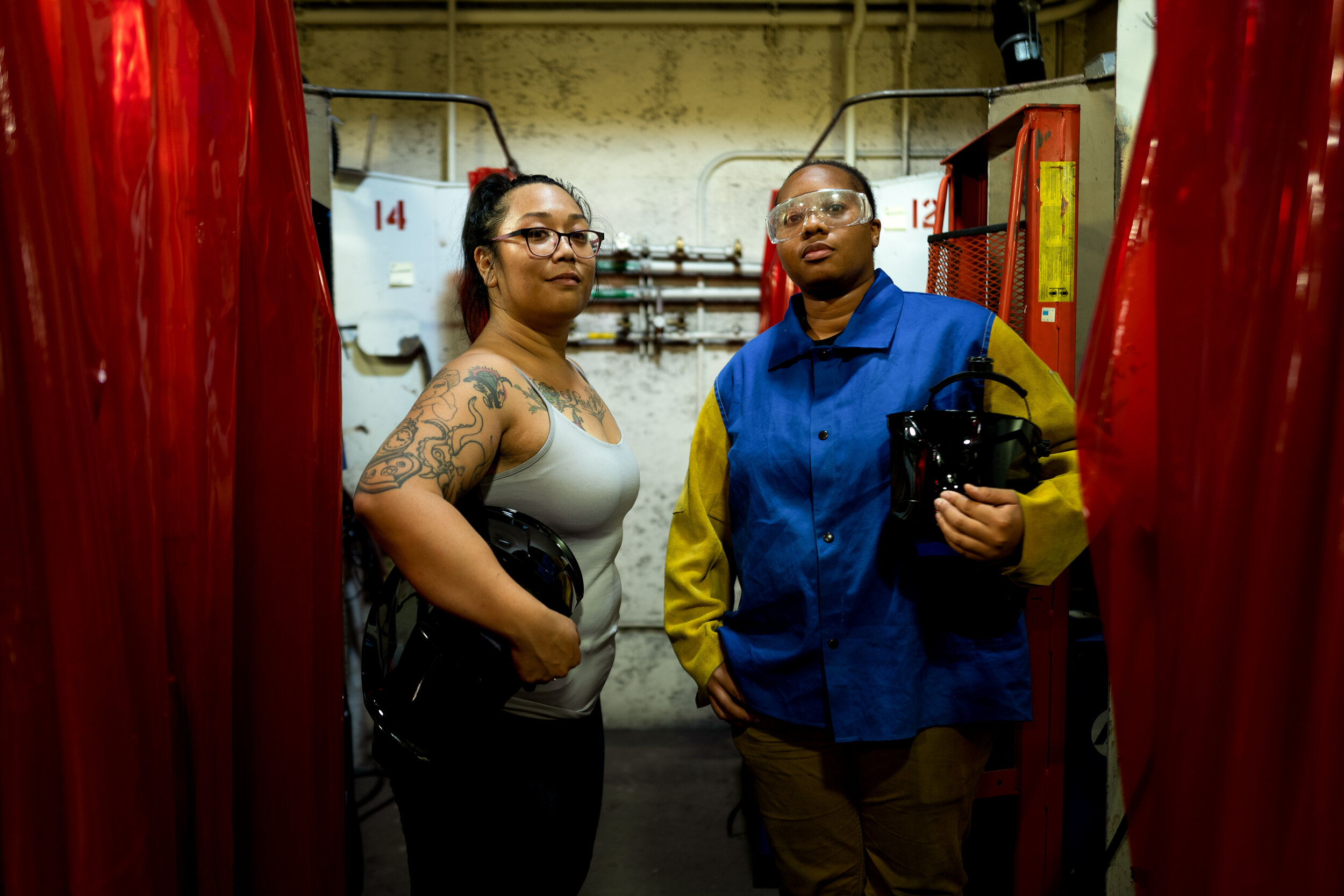
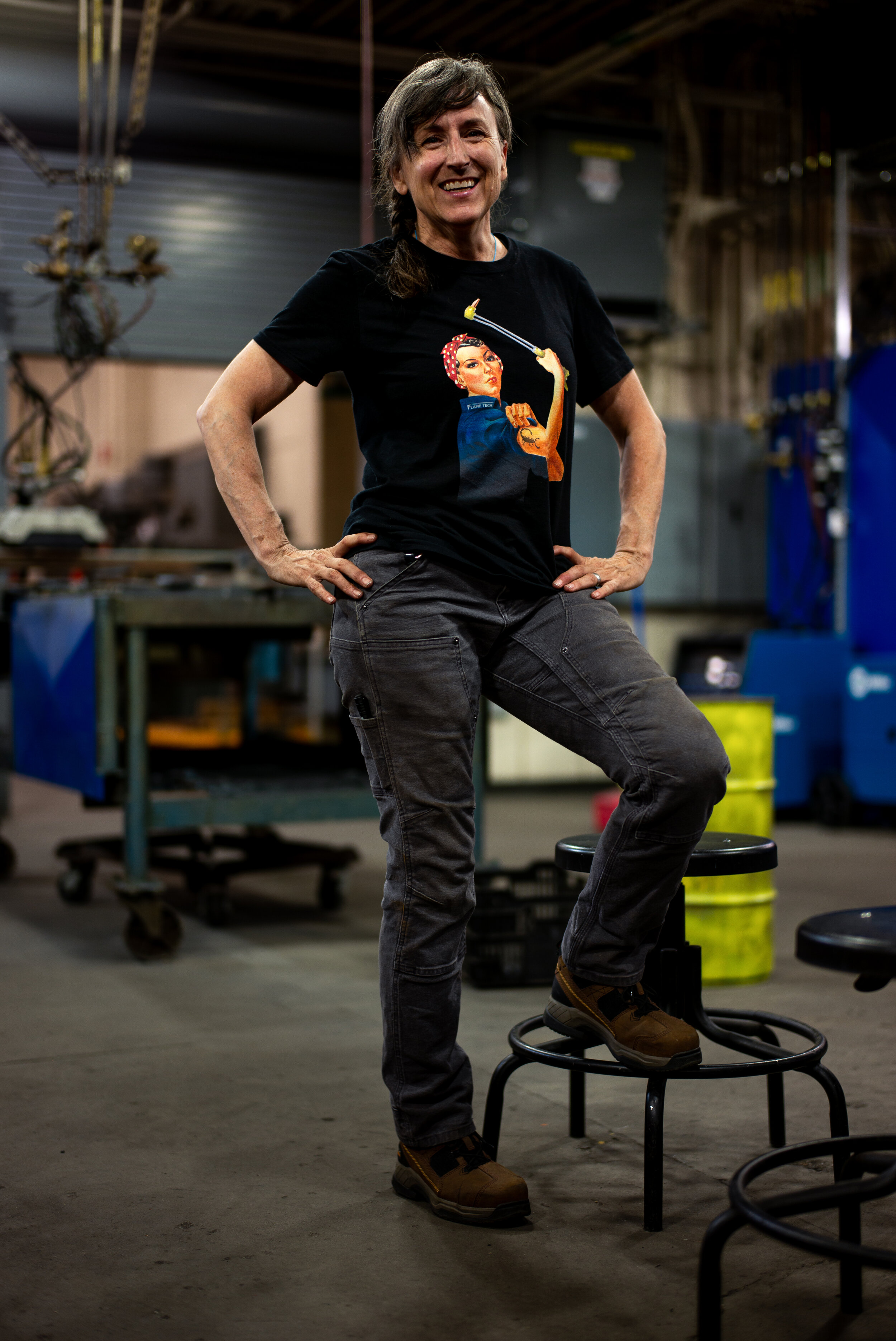
Welding
From fine art student to welding teacher, Liisa now dedicates her time to educating the next generation of welders.
Question + Answer
1) How and why did you enter the field of welding?
“I was interested in it via art—it’s an entry point that’s becoming much more common. I was interested in steel as a medium, and welding sounded mysterious and badass. When I eventually took a welding class, I was surprised about how supportive the instructors were. Initially I thought I would do it as part of mechanical engineering, but it was more intellectually challenging and a much broader field than I thought.
This was in 1991, so it’s been almost 28 years. It was like climbing a tree—there were so many opportunities. I got involved with the American Welding Society early on and I met a lot of people. I had so many situations where I really put myself out there—I asked to go to demonstrations and conferences. That all informed my opportunities, so I could pick and choose from that.
Now, I have a broad background in welding—everything from rail yards, tracks for muni, making tables for designers, working for the exploratorium, to working on a jet car team. I did a lot of work for myself and ran things out of my own shop.
Welding is in every industry. It has everything I was looking for in art. The scientific method method and the artist method.”
2) What’s it like being a woman in your industry?
“At this point, I don’t even notice it. I think there are fewer women in blue collar in general—it makes it seem so much more exotic. I didn’t come from a blue collar background, so it was a new world in general—I was never encouraged to get into this as a kid.
The stereotype from outside is that it’s really harsh, and that’s not necessarily true. It’s great 99.9% of the time, and every few months you have a few incidents where you come across people are hard to work with. I have an easier mix, because I’m in education, which is female-dominated. Sometimes at a conference, you get men who just don’t know how to act around women, but in the Bay Area there is so much support. You’ll run into jerks wherever you go—it’s less about the industry, I think.
There are stereotypes within the industry, and the stereotypes outside the industry. The ones I struggle with most are that people think blue collar jobs aren’t intellectually challenging. The harshest comments I’ve experienced have had to do with the underestimation of the field.”
3) What can people do to help break down those stereotypes?
“Find out more about blue collar work. Follow someone on Instagram who is a blue collar worker! Investigate what these people are up to, especially on YouTube.
As a welder, you are kind of out of the way—people can’t really run up to you while you’re working. But Instagram completely changed this. I used to go to these welding meetings every month, but it wasn’t that interesting and that kind of faded out. The culture didn’t bridge well between old-timers and newcomers. Then social media came out with all of these pictures and stories—all of a sudden you have this human interest and entertainment value. Awareness about it spread, people who were doing it connected with each other. You’d meet them at conferences, have podcasts at a show. All of a sudden this generation found a way to connect over this sort of generationally lost skill.”
4) Who are some of the women you’ve met through Instagram and how have they changed how you work?
“Seeing what other women are up to. Jessie Combs, I kept up with her. I found out about her non-profit, and that kind of changed how I connect with other women on Instagram and keep up with the ones I worked with at other jobs.
Finding a voice about who I am as a welder and who a welder can be—that has been a weird fit because I’m not very traditional. I have so much in common with the women i’ve been connecting with, and with what Jessie Combs was out there representing. I’m more common than I thought. This is what the new girl welder looks like—someone who is really interested in technical skills. Those women were harder to find before social media.
I can recognize who these people are in my students, and help them foster that. There are more options than being a big burly male welder.”
5) What’s the best piece of advice you’ve received?
“It’s more about how the women hold themselves—they’re running around with their hearts on their sleeves. Any woman who has the ability to be really warm and friendly, while being really technical, and just not holding back their enthusiasm and their personality as part of being in this industry [inspires me]. Jessie Combs is a great example because she was so outgoing. These women can express these more feminine attributes and still thrive in this industry. I love the fact that I’m inspired by men as well—you don’t always have to be the woman on the poster.”
6) What kind of inspiration do you draw from men and how is that different from what you draw from women?
“That line is really blurry—and that’s what I love about this industry. What I love about the men who have helped bring me up to where I am today is that any time they had a high expectation and I didn’t do it, they were pissed off. That was great, because it meant they thought I could do it—the expectation is that I can and that I better expect this of myself. My expectations were low—sometimes the expectations for your performance [as a woman] are so low in this industry, like assuming you can’t do math. And women are statistically more hesitant, because they haven’t been expected to be able to do these things. I thought I wouldn’t be able to do it either, but this feedback changed things internally.”
7) What are the stereotypes of women in your industry? How can we start to change them?
“It’s thought of as a very assembly line, repetitive job, and it’s just not. The skills required for the job are much more strict than they used to be—you see lots of people with 4-year degrees and even more advanced degrees in this field.”
8) Name the top 3 things you feel every woman needs to succeed in your industry.
1) “Ability to take constructive criticism. It’s not personal—it might sound personal, but it’s not.”
2) “Have the expectation that you CAN do it.”
3) “Be friendly (as much as you can stand—some people are more introverted). Meet people, reach out, go through the awkward social events. If you’re feeling awkward, you’re probably doing it right.”
9) Who is the woman in your life you look up to most, and why?
“There are so many, it’s a constellation. Lucia Rijker, who is a boxer—I’ve met her and she is an incredibly centered person. She works with troubled teenagers I believe. For a long time, she was trying to fight the best boxer in America who was avoiding her, but still maintaining this optimism, drive, and serenity about people.
Another woman I look up to is my sister. One of my sisters was in a horrific accident and lost her leg and almost died. She has taken that and has taken up rock climbing for physical therapy, is advocating for safer streets in Manhattan, she’s working on getting back on her horse again and getting a special saddle, she goes to all of these conferences to talk. She should have died and sprang back into this incredible life. Her life is extremely hard, but she’s using it as a springboard.”
Resources
1) Women Who Weld
2) Women Welders
3) Real Deal Revolution
4) Tradeswomen
5) Carmen Electrode
6) Girls Garage
7) Bogis Garage
8) Crafted in Carhartt